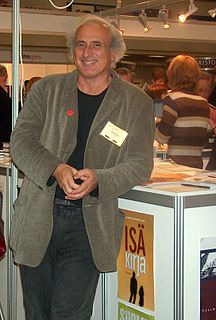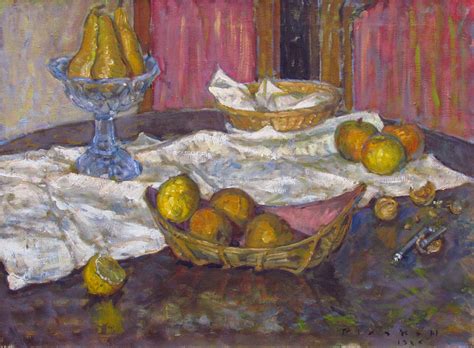A Quote by Herbert Read
The classicist, and the naturalist who has much in common with him, refuse to see in the highest works of art anything but the exercise of judgement, sensibility, and skill. The romanticist cannot be satisfied with such a normal standard; for him art is essentially irrational - an experience beyond normality, sometimes destructive of normality, and at the very least evocative of that state of wonder which is the state of mind induced by the immediately inexplicable.
Quote Topics
Anything
Art
Art Is
Beyond
Cannot
Common
Destructive
Essentially
Evocative
Exercise
Experience
Highest
Him
Immediately
Inexplicable
Irrational
Judgement
Least
Mind
Much
Naturalist
Normal
Normality
Refuse
Satisfied
See
Sensibility
Skill
Sometimes
Standard
State
State Of Mind
State Of Wonder
Very
Which
Wonder
Works
Works Of Art
Related Quotes
I was beginning to understand something about normality. Normality wasn't normal. It couldn't be. If normality were normal, everybody could leave it alone. They could sit back and let normality manifest itself. But people-and especially doctors- had doubts about normality. They weren't sure normality was up the job. And so they felt inclined to give it a boost.
The man who has honesty, integrity, the love of inquiry, the desire to see beyond, is ready to appreciate good art. He needs no one to give him an 'Art Education'; he is already qualified. He needs but to see pictures with his active mind, look into them for the things that belong to him, and he will find soon enough in himself an art connoisseur and an art lover of the first order.
To have the management of the mind is a great art, and it may be attained in a considerable degree by experience and habitual exercise... Let him take a course of chemistry, or a course of rope-dance, or a course of any thing to which he is inclined at the time. Let him contrive to have as many retreats for his mind as he can, as many things to which it can fly from itself.
[T]hat state, love, is so utterly alien to that other idea without which we cannot live as human beings --- the idea of justice. It is only because love is so profoundly the enemy of justice that our minds, shrinking in horor from its true nature, try to tame it by uniting it with its opposite [...] in the hope that if we apply all the metaphors of normality, that if we heap them high enough, we shall, in the end, be able to approximate that state metaphorically.
Photography is unlike any other art form. In the other arts there is always a continuous interplay between the artist and his art. He has the painting or sculpture before him. What we have tried to do is to provide a medium for "artistic expression" to anyone with only a reasonable amount of time. By giving him a camera system with which he need only control his selection of focus, composition and lighting, we free him to select the moment and to criticize immediately what he has done. We enable him to see what else he wants to do on the basis of what he has just learned.
Thus we cannot escape the fact that the world we know is constructed in order to see itself. This is indeed amazing. Not so much in view of what it sees, although this may appear fantastic enough, but in respect of the fact that it can see at all. But in order to do so, evidently it must first cut itself up into a least one state which sees, and at least one other state which is seen.
Fine art, that exists for itself alone, is art in a final state of impotence. If nobody, including the artist, acknowledges art as a means of knowing the world, then art is relegated to a kind of rumpus room of the mind and the irresponsibility of the artist and the irrelevance of art to actual living becomes part and parcel of the practice of art.
Thus, if there is anyone who is confident that he can advise me as to the best advantage of the state in this campaign which I am about to conduct, let him not refuse his services to the state, but come with me into Macedonia. I will furnish him with his sea-passage, with a horse, a tent, and even travel-funds. If anyone is reluctant to do this and prefers the leisure of the city to the hardships of campaigning, let him not steer the ship from on shore.






































